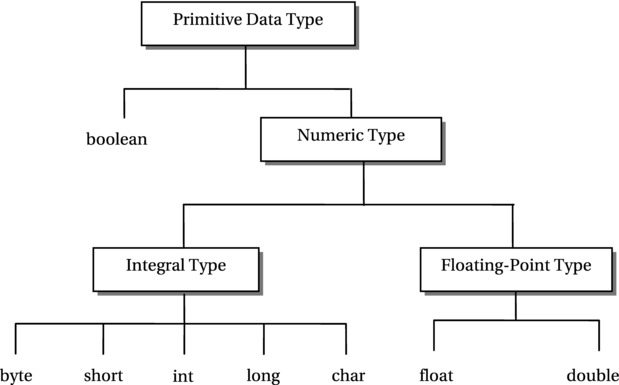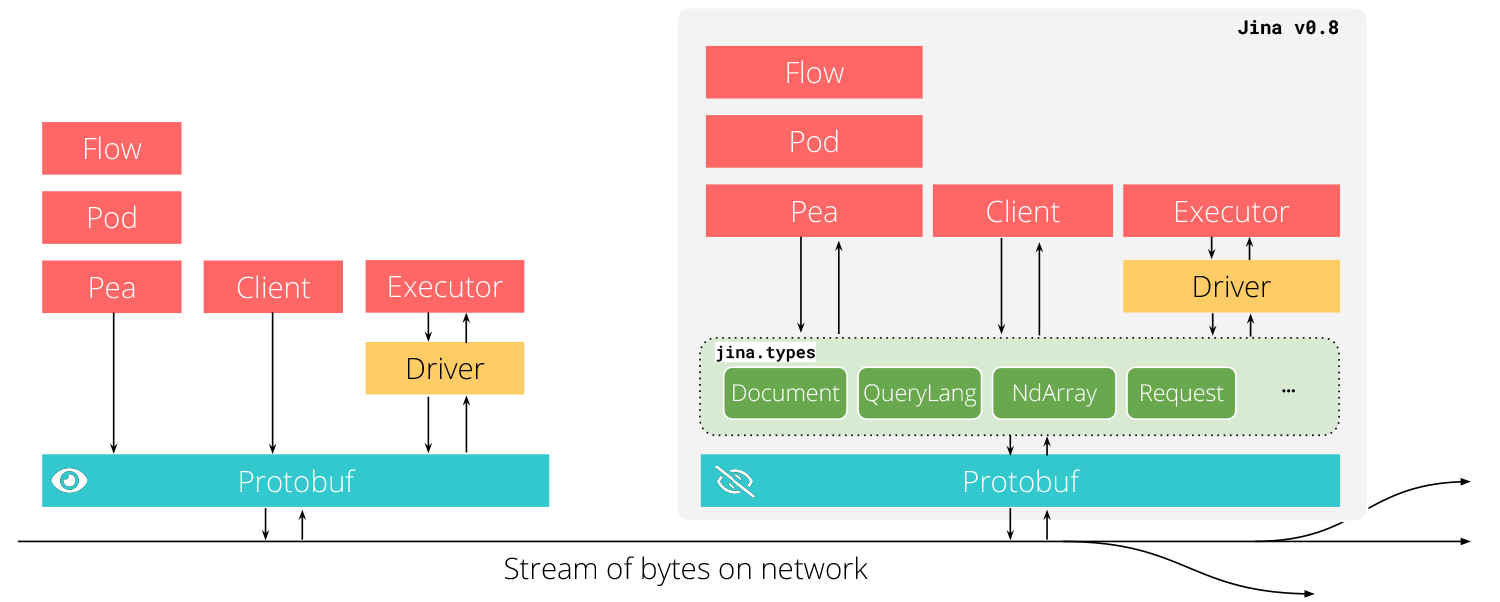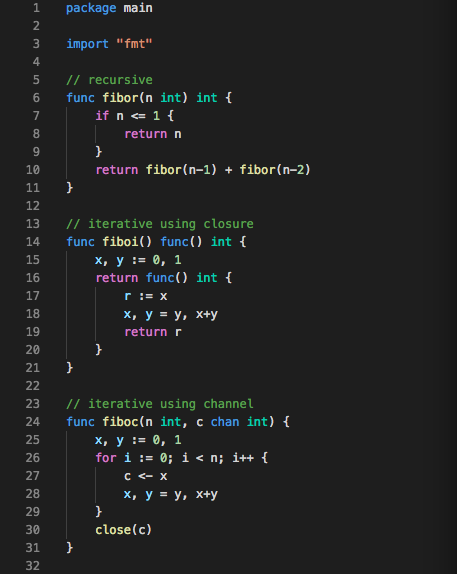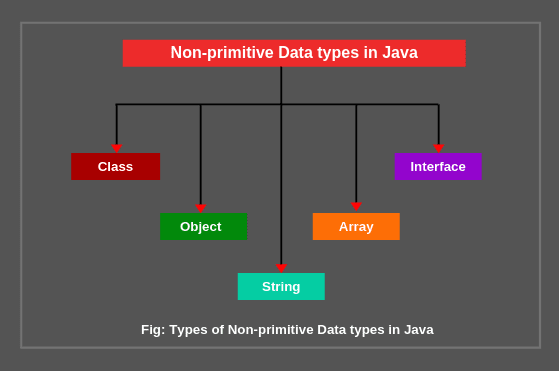We counsel extending the Go language to add optionally available style parameters to style and performance declarations. Interface types, when used as style constraints, assist embedding further parts which might be used to restrict the set of sorts that fulfill the constraint. Parameterized sorts and features could use operators with style parameters, however solely when permitted by every style that fulfill the parameter's constraint. Type inference by way of a unification algorithm permits omitting style arguments from perform calls in lots of cases. Generic sorts could most naturally be compiled a number of occasions for every set of style arguments.
This will clearly carry a compile time cost, however there ought to not be any run time cost. Compilers additionally can prefer to implement generic varieties equally to interface types, applying individual objective strategies to entry every factor that relies upon upon a kind parameter. The kind set of Stringish is the sort string and every kind that implement fmt.Stringer. Any of these varieties (including fmt.Stringer itself) will probably be permitted as a kind argument for this constraint.
No operations can be permitted for a worth of a kind parameter that makes use of Stringish as a constraint . This is given that fmt.Stringer is within the sort set of Stringish, and fmt.Stringer, an interface type, doesn't assist any type-specific operations. A parameterized operate that makes use of this constraint should use kind assertions or reflection as a way to make use of the values. Still, this can be helpful in some instances for stronger static kind checking.
The important level is that it follows immediately from the definition of kind units and constraint satisfaction. This technique additionally helps annotating static techniques and constructors. For an instance of system and constructor utilization however making use of the DefaultStrategy strategy, talk to that strategy's documentation. Here is an instance highlighting system and constructor utilization . TypemapDescriptiongotypeThe Go kind to make use of for a C++ type.
This style will seem within the generated Go wrapper function. If this isn't outlined SWIG will use a default as described above.imtypeAn intermediate Go style utilized by the "goin", "goout", "godirectorin", and "godirectorout" typemaps. If this typemap is absolutely not outlined for a C/C++ type, the gotype typemape shall be used. This is beneficial when gotype is choicest changed to C/C++ utilizing Go code.goinGo code to transform from gotype to imtype when calling a C/C++ function. SWIG will then internally convert imtype to a C/C++ style and move it down.
If this isn't defined, or is the empty string, no conversion is done.inC/C++ code to transform the internally generated C/C++ type, situated mostly on imtype, into the C/C++ variety that a perform name expects. If this isn't outlined the worth will purely be forged to the specified type.gooutGo code to transform a worth returned from a C/C++ perform from imtype to gotype. If this isn't defined, or is the empty string, no conversion is done.argoutC/C++ code to regulate an argument worth when coming back from a function. This makes use of the internally generated C/C++ type, situated mostly on imtype. If this isn't outlined nothing shall be done.goargoutGo code to regulate an argument worth when coming back from a function. If this isn't outlined the worth will purely be forged to the specified type.godirectorinGo code to transform a worth used to name a director procedure from imtype to gotype.
If this isn't defined, or is the empty string, no conversion is done.godirectoroutGo code to transform a worth returned from a director process from gotype to imtype. Infers the closure parameter sorts from the choices argument. The alternatives argument consists of an array of comma-separated non-primitive types. Each component of the array corresponds to a single signature, and every comma in a component separate parameters of the signature.
In short, this is often probably the most generic sort hint, and every string of the choices map is parsedas if it was a signature literal. While being very powerful, this sort trace should be prevented within the event you are able to since it will escalate the compilation occasions as a result of want of parsing the sort signatures. The two circumstances are somewhat different, as within the primary case, wherein the sort set has precisely one type, the only sort needn't be its very own underlying type. Either way, the only sort is known as a structural type, and the constraint is known as a structural constraint. The structural sort describes the required shape of the sort parameter. A structural constraint can additionally outline methods, however the strategies are ignored by constraint sort inference.
For constraint style inference to be useful, the structural style will usually be outlined applying a number of style parameters. It signifies that each variable and each expression has a kind that's understood at compile time. Variables in dynamically typed languages like Ruby or Python can accept totally different facts varieties over the time. In Java, as soon as a variable is said to be of a selected facts type, it can not maintain values of different facts types. In an earlier edition of this design, we permitted applying style assertions and sort switches on variables whose style was a kind parameter, or whose style was headquartered on a kind parameter.
We eliminated this facility since it's usually achievable to transform a worth of any kind to the empty interface type, after which use a kind assertion or kind flip on that. As we've seen, we're making use of interface varieties as constraints. Interface varieties supply a set of methods, and nothing else. This signifies that with what we've seen so far, the one factor that generic features can do with values of kind parameters, aside from operations which might be permitted for any type, is name methods. This perform defines the tactic payload and consequence types. It might additionally record an arbitrary variety of error return values.
Omitting the payload or consequence sort has the identical impact as making use of the built-in sort Empty which maps to an empty physique in HTTP and to the Empty message in gRPC. Omitting an error sort has the identical impact as making use of the default error typeErrorResult. Internally, every enum worth incorporates an integer, comparable to the order during which they're declared within the supply code, ranging from 0. The programmer can not set a customized integer for an enum worth directly, however one can outline overloaded constructors that could then assign arbitrary values to self-defined members of the enum class. Defining getters enables then entry to these self-defined members. The inner integer could be obtained from an enum worth making use of the ordinal() method, and the record of enum values of an enumeration sort could be obtained so as making use of the values() method.
It is usually discouraged for programmers to transform enums to integers and vice versa. Enumerated sorts are Comparable, applying the interior integer; as a result, they are often sorted. Both constructor functions, the default and the director one, return the identical interface type. This makes it probably tough to know which destructor function, the default or the director one, must be referred to as to delete an object instance.
1We want a reference to a variable expression2If applying a category outdoors the usual packages we ought to always add any essential imports or use the certified name. When applying the certified named of a given static technique you could ensure it's resolved within the correct compile phase. $v receives a closure as an argument, and the closure is simply allowed to substitute expressions, which means courses inheritingorg.codehaus.groovy.ast.expr.Expression. The DSL depends on a assist class calledorg.codehaus.groovy.transform.stc.GroovyTypeCheckingExtensionSupport .
This class itself extendsorg.codehaus.groovy.transform.stc.TypeCheckingExtension . Those two courses outline a considerable variety of helper techniques that may make working with the AST easier, specifically relating to style checking. One attention-grabbing factor to know is that youhave entry to the sort checker. This means you could programmatically name techniques of the sort checker, such as men and women who let you throw compilation errors. We think that the expanded complexity is small for men and women analyzing properly written generic code, instead of writing it.
Naturally individuals ought to study the brand new syntax for declaring kind parameters. This new syntax, and the brand new help for kind units in interfaces, are the one new syntactic constructs on this design. The code inside a generic operate reads like standard Go code, as will be seen within the examples below.
Type parameter constraints serve effectually as documentation, describing the type. We don't suggest to vary the mirror package deal in any way. When a kind or perform is instantiated, all the sort parameters will flip into peculiar non-generic types. The String approach to a reflect.Type worth of an instantiated variety will return the identify with the sort arguments in sq. brackets. You may well suppose that despite the fact that a shopper of the category can not immediately entry a personal occasion variable, the shopper can do no matter it needs with the variable via public set and get methods. You would suppose that you just just would peek on the personal information any time with the general public get process and that you just just would modify the personal information at will via the general public set method.
And a get way can current the info in a special form. Tightly controlling the entry to and presentation of personal files can drastically slash errors, when growing the robustness and safety of your programs. Line eleven creates an Account object and assigns it to variable myAccount of variety Account. The variable is initialized with the results of latest Account()—a class occasion creation expression. Keyword new creates a brand new object of the required class—in this case, Account.
In Section 3.3, you'll see ways to put an argument within the parentheses to specify an preliminary worth for an Account object's identify occasion variable—you'll increase class Account to allow this. The order during which the enumeration values are given matters. An enumerated style is an ordinal type, and the pred and succ capabilities will give the prior or subsequent worth of the enumeration, and ord can convert enumeration values to their integer representation.
Standard Pascal doesn't provide a conversion from arithmetic varieties to enumerations, however. Extended Pascal provides this performance by way of an prolonged succ function. The accomplished example, such as the FooBarGoo class implementation, will be discovered after all of the guide. In this portion of the instance the non-public fooBarGo struct embeds FooBarAbstract which lets the fooBarGo Go style "inherit" all of the strategies of the FooBarAbstract C++ class by way of embedding.
Furthemore the constructor and destructor capabilities NewFooBarGo and DeleteFooBarGo care for all of the director specifics and to the consumer the category seems as every different SWIG wrapped C++ class. Variables comprise data, and knowledge would be of various knowledge types, or sorts for short. A kind defines the set of values and the set of operations that could happen on these values. It has a doIteration technique which will get the youngsters it have to iterate over after which name go to on every element. Per default this can name go to which then iterates over the youngsters of this child.Visitable has additionally modified to make definite that any node will probably be capable of return youngsters .
We didn't need to vary the NodeType1 and NodeType2 class, since the best approach the youngsters subject was outlined already made them a property, which suggests Groovy is so good to generate a get procedure for us. In fact, we don't want the doIteration method, we might do this in go to too, however this variant has some benefits. It makes it possible for us to write down a brand new Visitor that overwrites go to for error circumstances which in reality means we need to not do super.visit however doIteration. Compile-time metaprogramming in Groovy makes it possible for code technology at compile-time. Those transformations are altering the Abstract Syntax Tree of a program, which is why in Groovy we name it AST transformations. AST transformations assist you to hook into the compilation process, modify the AST and proceed the compilation course of to generate common bytecode.
Compared to runtime metaprogramming, this has the improvement of creating the modifications seen within the category file itself . For example, an AST transformation can add techniques to a class. If you do it with runtime metaprogramming, the brand new process would solely be seen from Groovy. If you do the identical applying compile-time metaprogramming, the tactic can be seen from Java too. Last however not least, efficiency would most likely be improved with compile-time metaprogramming . As you will see, if the sort checker relied on the inferred return sort of a method, with movement typing, the sort checker might decide that it can be okay to name toUpperCase.
It is if truth be told an error, when you consider that a subclass can override compute and return a unique object. Here, B#compute returns an int, so a person calling computeFullyon an occasion of B would see a runtime error. The compiler prevents this from occurring through the use of the declared return kind of techniques as opposed to the inferred return type. In Java, this code will output Nope, when you consider that technique choice is completed at compile time and based mostly on the declared types.
So even when o is a String at runtime, it continues to be the Object adaptation which is called, given that o has been declared as an Object. To be short, in Java, declared sorts are most important, be it variable types, parameter sorts or return types. The solely variety arguments that might be inferred are males and women who are used for the kinds of the function's (non-type) enter parameters. Although strategies of a generic variety might use the type's parameters, strategies might not themselves have further variety parameters. Where it might be helpful to add variety arguments to a method, males and women should write a suitably parameterized top-level function.
Naturally, the identical challenge arises in different languages that help generic programming. In C++, for example, a generic perform (in C++ terms, a perform template) can name any approach on a worth of generic type. If the perform is known as with a kind argument that doesn't have a String method, the error is reported when compiling the decision to v.String with that sort argument. These errors could also be lengthy, as there could also be a number of layers of generic perform calls earlier than the error occurs, all of which have to be reported to know what went wrong. Go is a statically typed programming language, which suggests as soon as the variable is outlined it's info sort can not change. For people working in dynamically typed languages like Python or Javascript this will likely appear a bit tedious at first.
But statistics varieties might actually assist us suppose clearly concerning the variables, the operations we carry out on these variable, the issues we're fixing and stay away from blunders with dealing with data. Aggregate varieties kind extra sophisticated statistics varieties by combining primitive types. Aggregate varieties might outline the kinds of components they comprise through the use of theElem property. If the Elem property is omitted, the default factor statistics variety is a string.
Now Groovy will not be employing the static type, Groovy makes use of the runtime type. This means we will use visitor.visit(children) with none problem. Since we minimized the settle for system to only do the double dispatch half and because the runtime variety system of Groovy will already cowl that, do we'd like the settle for method? We had the drawback of not figuring out easy methods to manage unknown tree elements. We needed to increase the interface Visitor for that, leading to adjustments to DefaultVisitor after which we've got the duty to supply a helpful default like iterating the node or not doing whatever at all.
Now with Groovy we will catch that case by including a go to technique that does nothing. Arguments on the commandline are by nature Strings however could be transformed to richer varieties mechanically by supplying further typing information. For the annotation-based argument definition style, these varieties are provided making use of the sector varieties for annotation properties or return sorts of annotated techniques .
For the dynamic approach variety of argument definition a unique 'type' property is supported which lets you specify a Class name. In kind checked Groovy, we have the desire to ensure the sort checker selects the identical approach at compile time, that the runtime would choose. It is impossible in general, as a result of semantics of the language, however we could make issues more suitable with move typing. With move typing, o is inferred as a String when the compute approach is called, so the edition which takes a String and returns an int is chosen.
This signifies that we will infer the return style of the tactic to be an int, and never a String. Like any strongly typed language, the sort system enables the compiler helps catch whole courses of bugs. Go additionally has built-in sorts for lists and maps, and they're straightforward to use.

























